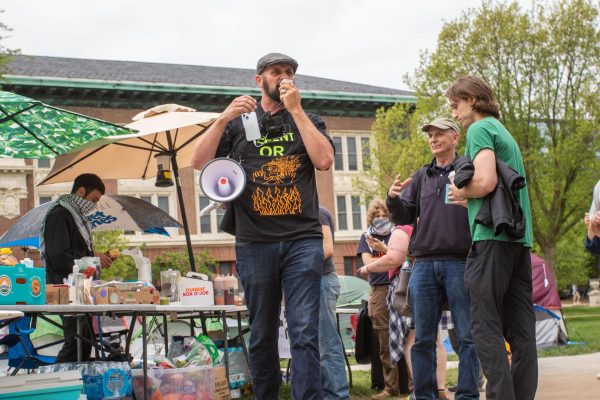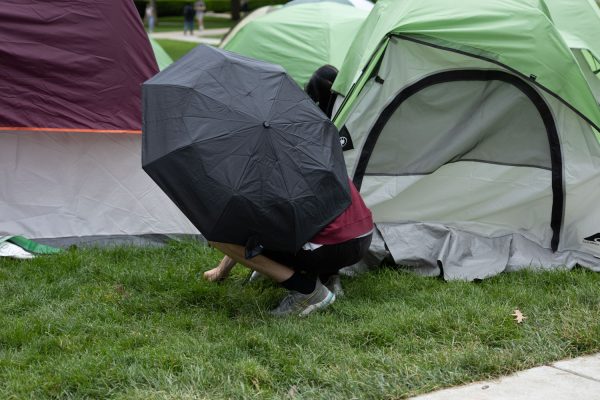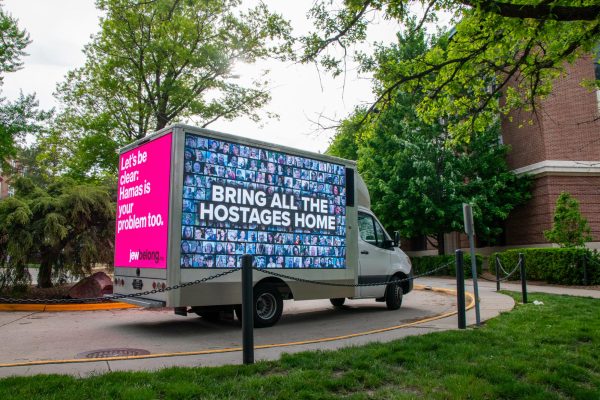Speech important for students’ success
September 8, 2009
A speech that President Barack Obama will be giving today has been drawing fire even before its match was lit.
Ever since President Barack Obama has announced that he will be addressing the future of the nation, he has been drawing criticism. But his speech is not a State of the Union or even about health care. Rather, it’s something a little more subtle; inspiration to stay in school along the lines of promoting higher-education.
President Obama will be directing a back to school speech toward students in kindergarden to senior year of high school in Wakefield, Va. and the footage will be on televisions across the nation. Several conservative organizations and individuals have been accusing Obama of trying to pitch a socialist or leftist political agenda too aggressively in a local-education setting and are urging schools and parents to boycott the address.
Schools are not required to show the speech or use proposed supplemental activities that accompany it, but are suggested to. The final decision is, however, up to each school. Some districts have decided not to air the speech in response to concerns from parents,
If parents can so easily persuade a school not to air a speech given by the President of the United States, what else can they influence within their child’s school curriculum? Should parents have that kind of power over their children’s education?
Get The Daily Illini in your inbox!
President Obama’s speech is not a political agenda, but rather an educational agenda. To sit in a classroom amongst peers, students and faculty, this speech is an opportunity for students to listen to their President who on most every other occasion is not speaking directly to them but to the older voters. It’s also important to point out how inspirational a speech like this can be, when it touches the hearts of children who often don’t hear words like “You can do it.”
President Obama is the an example of success and to many children across the nation, he represents the chance to dream big. Shouldn’t we offer that chance to every little boy and girl? This particular speech is for the future, for our students’ well-beings. It has nothing to do with health care or leftist ideology. Instead, the speech is meant to be inspirational for students, and even former Republican presidents Ronald Reagan and George H.W. Bush have delivered similar speeches.
Students will only benefit from listening to the Presidents’ remarks, and parents are only doing their children harm from preventing them to listening. If a student is taken out of school or not offered the opportunity to listen, they will just hear talk about it later and might be misled. If parents don’t agree with what President Obama has to say, this can be an educational opportunity to sit down with their children and go through what they liked about the speech — or what they didn’t.
In pre-made remarks, Obama acknowledged that “being successful is hard,” but told the students the country badly needs their best effort to cope in an increasingly competitive global economy.
“What you make of your education will decide nothing less than the future of this country,” Obama says. “What you’re learning in school today will determine whether we as a nation can meet our greatest challenges in the future.”
There is a level of disrespect that comes with not airing the speech for these students. As the leader of the U.S., he is only acting in the best interest of everyone. It means something to children to hear directly from the president, like writing letters to him during elementary school or participating in certain programs set up by him in high school.
We say: Watch, students. Enjoy getting out of math class for the hour it takes for Obama to speak. Remember the message as well as the bigger picture — your parents and governments’ role in your education, curricula and otherwise.






